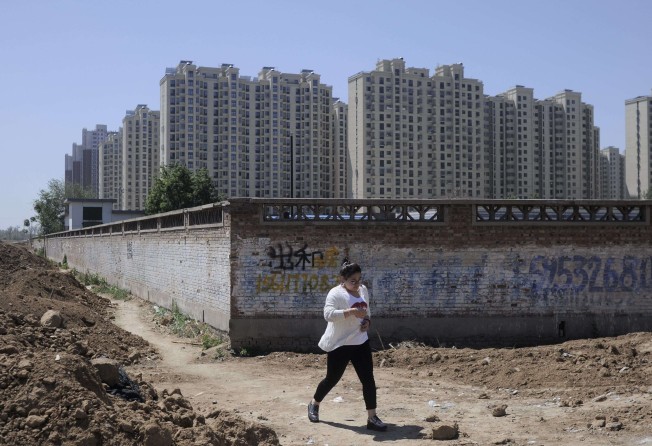Developers say new tax system may increase construction costs
Value added tax reform extended to sector this month

Mainland Chinese property developers say tax changes introduced this month may increase construction costs and it is too early to say if overall tax payments will be reduced.
The mainland expanded value added tax (VAT) reform, which aims to completely replace the current business tax with VAT, to all industries, including the real estate, construction, financial services and lifestyle services sectors, from the start of this month.
The initiative is designed to reduce the tax burden of business, but firms in the real estate sector are finding it a challenge to cut costs amid an industry-wide slowdown that has them struggling to make profits.
“The reform involves our upstream and downstream vendors such as construction companies, we need time to negotiate with them to decide who will bear the VAT tax burden, which may end up increasing our construction costs,” Ryan Hui, the chief financial officer of medium-sized developer Yuzhou Properties, said.
Under the new tax scheme, developers are levied a 11 per cent VAT on sales, after deducting the land cost, and can claim tax refunds on construction costs later. Previously they paid business tax of 5 per cent on sales, with no deductions or refunds.
However, as the VAT reform also applied to the construction sector, Hui said construction companies tended to keep the VAT invoices for the cost of materials for their own tax credits and passed the VAT on to developers, which could see them pay more for construction as the new tax rate was 11 per cent.
On top of that, there were many cases of properties being on sale that would be subject to the 11 per cent VAT, but the land and other costs were paid before May 1, which meant there would be no deductions and developers would have to pay more tax.
Hui said the tax authorities would allow developers to opt for previous 5 per cent business tax for such projects, but had yet to clarify the rules in detail.
“It is a big change for us,” said Liu Bin, chief financial officer of Nanjing’s Landsea Green Properties.
“The adjustment is very complicated and in practice that is not easy to do as it needs cooperation with
up- and down-stream [to collect invoices]. It will take at least a quarter to see the real effect of the reform.”
The State Administration of Taxation estimates the VAT reform can save businesses up to 500 billion yuan (HK$598 billion) in tax this year.
“For the real estate sector, the overall plan of China is to help developers to pay less tax in order to stimulate the sector,” Sarah Chin, southern region tax managing partner at Deloitte China, said.
“Developers still have a lot of questions as the regulation was just released in March and it is quite complicated and long. Many of our clients are still trying to decide whether to choose 5 per cent BT or 11 per cent VAT for current projects, because you need to know how many flats you can sell.”